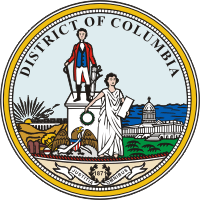 The District of Columbia, which became the nation’s capital in 1791, was by 1862 a city of contrasts: a thriving center for slavery and the slave trade, and a hub of anti-slavery activity among abolitionists of all colors. Members of Congress represented states in which slavery was the backbone of the economy, and those in which slavery was illegal.
The District of Columbia, which became the nation’s capital in 1791, was by 1862 a city of contrasts: a thriving center for slavery and the slave trade, and a hub of anti-slavery activity among abolitionists of all colors. Members of Congress represented states in which slavery was the backbone of the economy, and those in which slavery was illegal.
One result of the intense struggle over slavery was the DC Compensated Emancipation Act of 1862, passed by the Congress and signed by President Abraham Lincoln. The act ended slavery in Washington, DC, freed 3,100 individuals, reimbursed those who had legally owned them and offered the newly freed women and men money to emigrate. It is this legislation, and the courage and struggle of those who fought to make it a reality, that we commemorate every April 16, DC Emancipation Day.
Though the Compensated Emancipation Act was an important legal and symbolic victory, it was part of a larger struggle over the meaning and practice of freedom and citizenship. These two words continue to be central to what it means to be a participating member of society. We invite you to think about what these concepts have meant in the past and what they mean to you today.